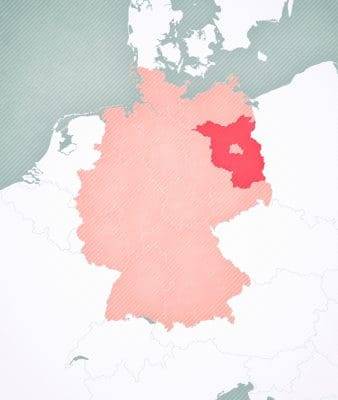German authorities have recently reported the country’s first outbreak of foot and mouth disease in nearly four decades. The virus was detected in three dead water buffalo on a farm in the state of Brandenburg, located on the outskirts of Berlin. Initially, the animals were suspected of being infected with Bluetongue disease, which has been spreading across Europe since 2023. However, further testing confirmed that foot and mouth disease was the cause of the outbreak.
In response to the outbreak, the remaining 11 animals in the herd were destroyed, and an exclusion zone of 3 kilometers and a monitoring zone of 10 kilometers were established around the affected farm. This swift action is crucial in containing the spread of the highly contagious disease. The last reported outbreak of foot and mouth disease in Germany occurred in Lower Saxony in 1988, highlighting the significance of this recent development.
Foot-and-mouth disease (FMD) is a serious animal disease that affects cloven-hoofed animals such as cattle, sheep, goats, camelids, deer, and pigs. While FMD is not transmissible to humans through the consumption of affected meat, it poses a significant threat to animal populations. The virus can be carried by live animals, meat, dairy products, soil, equipment, and even on clothing and footwear. In most cases, affected herds are culled to prevent further spread of the disease.
Germany, as a major exporter of beef, dairy, and pork products, is taking proactive measures to prevent the spread of FMD to other countries. The Netherlands, for example, has imposed a ban on the movement of veal calves following the outbreak in Brandenburg. Similarly, South Korea has implemented a ban on German pork imports to protect its own livestock industry.
In response to the outbreak, Irish agriculture minister Charlie McConalogue expressed sympathy for German farmers and urged vigilance among Irish farmers. He reassured the public that no animals susceptible to FMD had been imported from Germany to Ireland since before the outbreak. Ireland has strict controls in place to prevent the spread of FMD, including prohibitions on imports from affected countries and a robust veterinary surveillance system.
Australia’s Department of Agriculture, Fisheries, and Forestry is also closely monitoring the situation to assess the biosecurity risk posed by the FMD outbreak in Germany. As a country heavily reliant on agriculture and livestock exports, Australia understands the importance of swift and effective containment measures in such situations.
Overall, the recent outbreak of foot and mouth disease in Germany serves as a reminder of the ongoing threat posed by animal diseases and the importance of global cooperation in preventing their spread. By implementing strict biosecurity measures, conducting thorough testing, and taking prompt action, countries can mitigate the impact of such outbreaks on their agricultural industries and protect animal populations from the devastating effects of highly contagious diseases like FMD.




